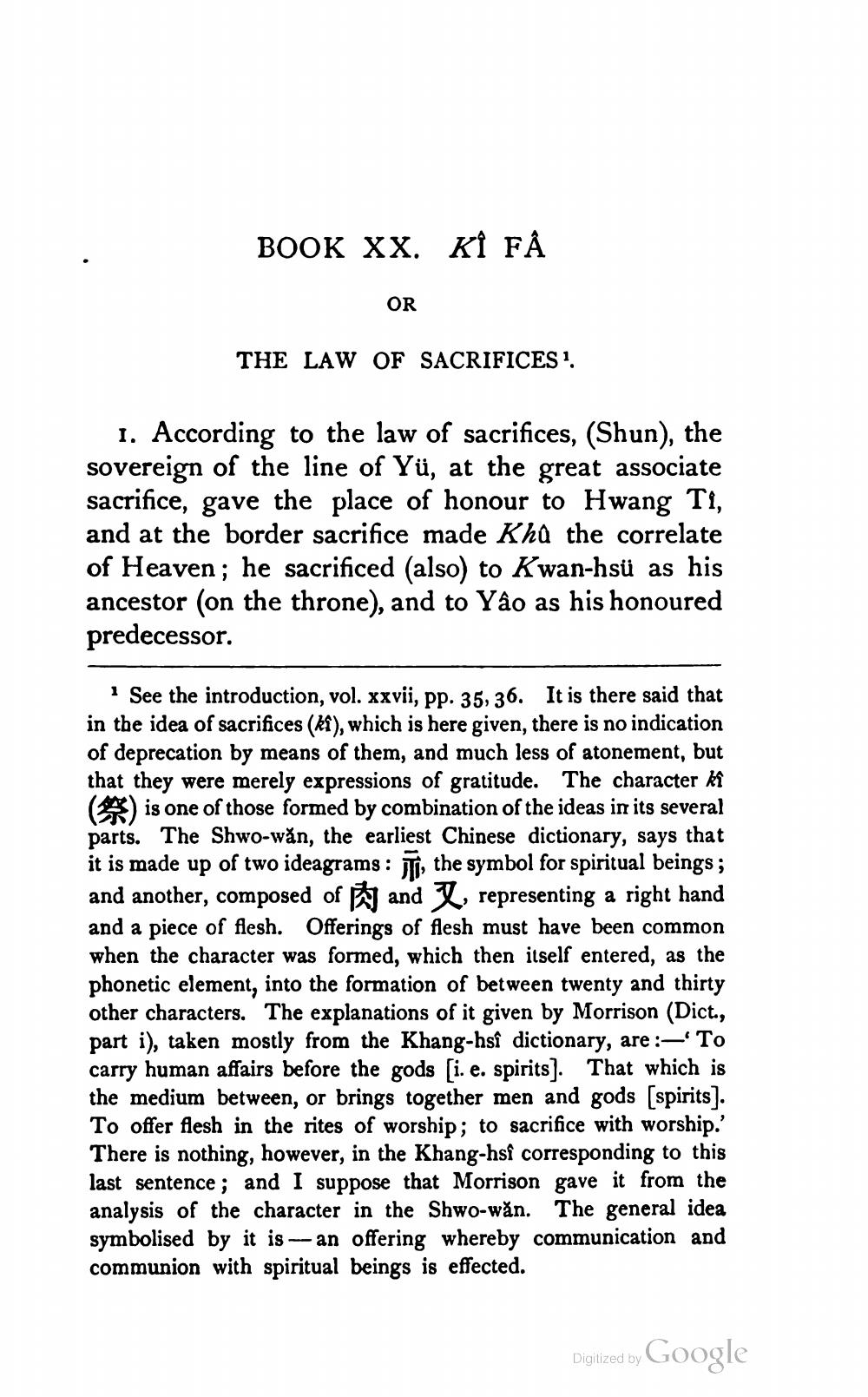________________
BOOK XX. KI FÅ
OR
THE LAW OF SACRIFICES.
1. According to the law of sacrifices, (Shun), the sovereign of the line of Yü, at the great associate sacrifice, gave the place of honour to Hwang Ti, and at the border sacrifice made Khu the correlate of Heaven; he sacrificed (also) to Kwan-hsü as his ancestor (on the throne), and to Yão as his honoured predecessor.
See the introduction, vol. xxvii, pp. 35, 36. It is there said that in the idea of sacrifices (ki), which is here given, there is no indication of deprecation by means of them, and much less of atonement, but that they were merely expressions of gratitude. The character ki EB) is one of those formed by combination of the ideas in its several parts. The Shwo-wăn, the earliest Chinese dictionary, says that it is made up of two ideagrams : , the symbol for spiritual beings; and another, composed of u and V, representing a right hand and a piece of flesh. Offerings of flesh must have been common when the character was formed, which then itself entered, as the phonetic element, into the formation of between twenty and thirty other characters. The explanations of it given by Morrison (Dict., part i), taken mostly from the Khang-hsî dictionary, are :-'To carry human affairs before the gods [i. e. spirits). That which is the medium between, or brings together men and gods (spirits). To offer flesh in the rites of worship; to sacrifice with worship.' There is nothing, however, in the Khang-hsî corresponding to this last sentence; and I suppose that Morrison gave it from the analysis of the character in the Shwo-wăn. The general idea symbolised by it is -- an offering whereby communication and communion with spiritual beings is effected.
Digitized by Google




